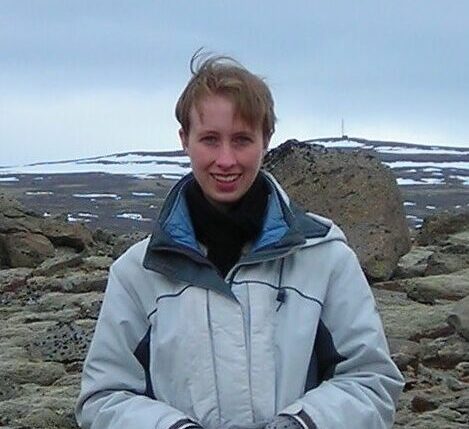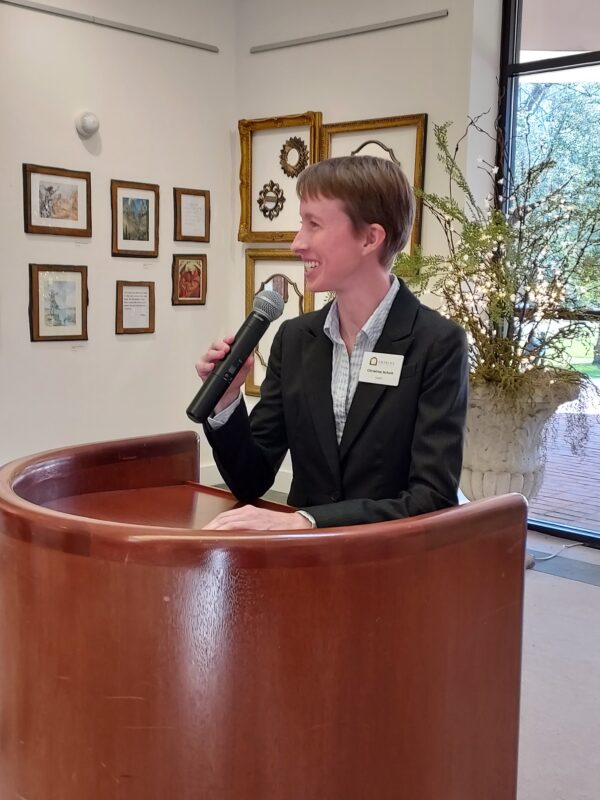
Her book “came out of my teaching,” English professor says

Associate Professor of English Dr. Christine Schott’s Canon Fanfiction was published earlier this year. The book’s full title is Canon Fanfiction: Reading, Writing, and Teaching with Adaptations of Premodern and Early Modern Literature. The lengthy title signals the book’s scholarly character—but the word “Teaching” in that title offers a clue about the author’s intentions and motivations. Schott (B.A., Dartmouth College; M.A., University of Virginia; M.A., University of Iceland; M.F.A., Converse College; Ph.D., University of Virginia) joined the Erskine College faculty in 2012. Her research interests include manuscript history, Old and Middle English literature, and Icelandic literature. Here, she answers a few questions about Canon Fanfiction.
What piqued your interest in writing on this topic?
I have always been interested in retellings, an interest that probably started with film adaptations of favorite books. Jane Austen fans have such strong opinions about films that aren’t “loyal” to the original books, but I often find those are the versions that interest me the most because they do something different. If I just wanted Jane Austen’s version, I’d read the novel!
Can you give some examples of published novels which make use of premodern and early modern source material and perhaps are important in your book?
Retellings of Greek epic and myth are very popular right now, particularly ones that retell the stories from the point of view of characters who are objectified or dehumanized in the original. People might be familiar with Madeline Miller’s Circe and Song of Achilles, but there are dozens more, and new ones keep appearing. I analyze several of these novels in my book to see how today’s authors respond to what we recognize as injustice or bias in Classical literature.
What were some of the rewards of writing the book?
What I find most meaningful about this project, aside from the fact that I’m incurably interested in the subject matter, is that it came out of my teaching. I’m always asking myself, “What value do the classics have for students in college today, especially when we look at them and sometimes can only see misogyny, racism, and xenophobia?”
I’ve realized, both as a reader and as a teacher, that sometimes the most productive way to find the value in that older literature is to retell it, to make it our own, and give it new life while at the same time recognizing that our worldview is profoundly different from that of Homer or even Shakespeare. In fact, I use retellings as a project option in many of my literature classes to give students the opportunity to try their own hand at entering the literary tradition. The results are always fascinating, and I hope my students find the work meaningful.
What were some of the most challenging aspects of the writing process?
This was a COVID project, actually, so on the one hand, I had plenty of writing time during lockdown, but on the other hand, it was a challenge getting access to library materials when most institutions had shut down. I’m very grateful to the Erskine library staff for working with me to keep the wheels turning when so much else in the world had come to a standstill.
Photo at top of page shows Dr. Christine Schott in Iceland. More about Schott and her interest in Icelandic literature can be found here.
